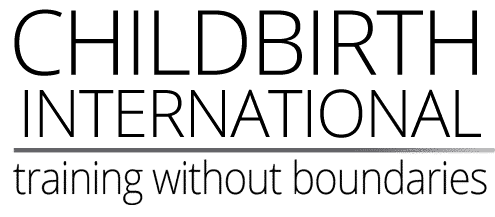Lactation Counselors are people who have attended specific training programs, completed the course requirements, had their knowledge assessed through testing and assignments, and received a certification once they have successfully completed the course. Training requirements are very different depending on the organization chosen. This page will help guide you through some of the questions to consider if you want to train as a Lactation Counselor.
You might be surprised to learn that the lactation field is unregulated. A lack of regulation means that no single regulatory body or organization governs the discipline, and there are no legal requirements to work as a Lactation Counselor. Organizations that offer lactation education may not be comparable because there are no standards that dictate what should be included in a lactation education program. Each organization will have its own standards, ethics, and expectations of your role, and its own way of delivering your course content. Do some research about the organizations that offer lactation education to be sure the platform is right for you, the material is comprehensive, will meet your education goals, and the organization has a good reputation.
How can I compare lactation training programs?
There are several important things to think about as you compare training programs:
- How many hours does the course take to complete?
- Are there any prerequisites?
- Does the course provide the opportunity for hands-on training?
- How much does training as a Lactation Counselor cost?
- Are there any restrictions or time limits in completing the course?
- Are course materials updated regularly?
- What support will you receive?
- Does the program qualify as lactation-specific education for the IBCLC® credential?
- Is the organization accredited?
You might like to take a look at our comparison charts that compare different organizations offering lactation education and answer many of the questions above: https://www.childbirthinternational.com/compare-training
How many hours does the course take to complete?
Some organizations offer training in a short time, for example, a three-day or five-day workshop. Other programs providing self-paced courses may take longer to complete. A 45-hour course will not take as much time as a 90-hour course but is also unlikely to teach the same level of knowledge or develop as many skills. Keep in mind that the number of hours will reflect the depth of material included in the course. If the course is focused on a specific aspect of lactation, such as feeding a preterm infant, it may be a shorter number of hours because of that narrow scope.
Are there any prerequisites?
Some courses require completion within a specific timeframe, while others allow you to take as long as you need. If there is a time limit, can you extend it if necessary, and is there an additional cost for that? If there are no time limits or restrictions, will you continue to have access to the course materials until you complete your training, and will those materials be available once you have completed your training?
Does the course provide the opportunity for hands-on training?
Practical experience providing high-quality lactation support to breast/chestfeeding dyads is an important part of the education experience. Generally, the organization you choose for training will outline the steps you should take to coordinate your practical experience. Remember that your experience may take various forms: you could lead support groups for breast/chestfeeding dyads, teach lactation education classes, and work one-on-one with new parents. Some courses, typically the shorter ones, do not require any hands-on experience. Others will require some experience working with clients to build and develop skills.
How much does it cost to train as a Lactation Counselor?
The cost of Lactation Counselor training varies from about US$800 to US$1,300 (as of Jan 2024). Some training organizations offer payment plans to make it easier to pay for the training over several months or have scholarship programs for specific groups. It is a good idea to understand if there are any hidden fees, such as the requirement to purchase required texts or annual fees after certification. If in-person, will you have other out-of-pocket costs such as accommodation, travel, and childcare?
Are there any restrictions or time limits in completing the course?
Some organizations have time limits, meaning you must complete the course within a specific timeframe. While you might be able to extend the time limit, there is usually an extra cost for an extension. Having no time limits means you can complete the course in a timeframe that works for you.
Are course materials updated regularly?
While the process of lactation and nursing doesn’t change, research and our understanding of how lactation works are always growing. Ideally, choose an evidence-based course that allows you to access updated information even after you have finished it.
What support will you receive? Do you have a dedicated trainer to provide feedback and guidance?
A dedicated trainer can help you reflect on your learning and motivate you as you progress through your course. If you choose to train with Childbirth International, you will be assigned a trainer to provide feedback on all your assignments. All CBI trainers are experienced Lactation Counselors and have specialist training in delivering adult education.
Does the program qualify as lactation-specific education for the IBCLC® credential?
If you intend to pursue the IBCLC® credential in the future, it is important that the training program provides the necessary 90 hours of lactation-specific education that is a prerequisite for that credential. You can read more about the pathways to becoming an IBCLC® here.
Is the organization accredited?
Accreditation means that the training organization has undergone the steps of having its training programs evaluated and recognized by an external group. Not all accreditation organizations are equal. Some have robust requirements that a training organization must meet to receive accreditation, while others require less rigor.
